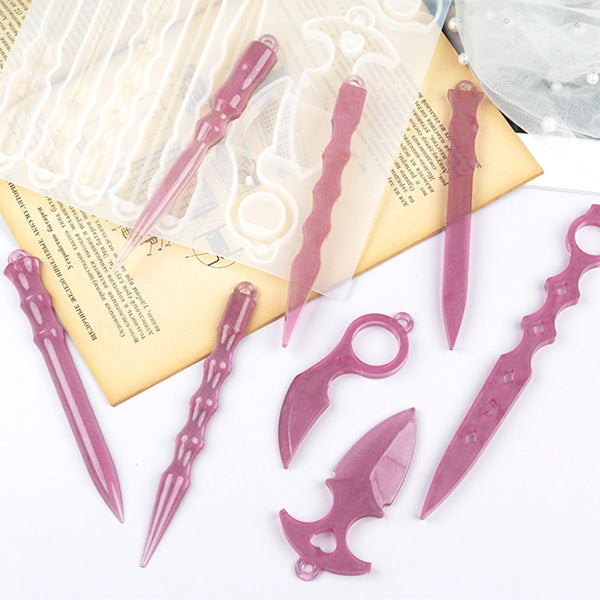
Chris Pizzo spent most of his time at school in Army ROTC. He even joined a reserve-based Ranger competition team, where he excelled in both mental and physical challenges. He aimed to get an active military commission after graduation, but a freak accident in a Judo school ended his plans. The tumor had grown from his neck and spread to his hip area and lymph nodes. Although the original tumor was removed by surgery and radiation, the cancer spread to his hip and lymph nodes. He is now receiving treatment at a New York Hospital.
Kimberly pizzo
Christopher and Kimberly Pizzo celebrated their five-year marriage anniversary by exploring their hometown. They had been to the South Street Seaport, and visited a local brewery. They still had a reservation to dinner. Christopher wanted to find out if Kimberly had made the reservation. Kimberly sent Chris an SMS on her phone.
Captain Chris Pizzo
Pizzo, Captain Chris, is a legendary martial artist. Pizzo has a long career in self defense. He is also the founder of Close Combat Training. He has been featured on Fox Good Day Tampa and Today Show. He is well-known for his videos on martial arts and has even taught self defense to military personnel. Pizzo was recently diagnosed as a cancer survivor despite his long career. He survived it all and continues sharing his lessons with his students.

His entrepreneurial spark
Chris Pizzo, a teenager, has been the brain behind many successful business ventures. His father Dr. Larry Pizzo encouraged him when he was young to start a business. At age 14 he launched his first business venture. Chris saw the difference between "creators” and "normal workers in terms of their earnings at the age 14
His cancer
A memorial donation in memory of someone you love who has been diagnosed is an option if you are a family member. Chris Pizzo was an entrepreneur and had founded several companies during his career. He loved teaching and mentored future entrepreneurs. He also donated to American Cancer Society and taught Brazilian Jiu-Jitsu his students. He lived a full, active life despite his devastating cancer diagnosis.
His marketing practices
Chris Pizzo's marketing practices are nothing short of revolutionary. Chris Pizzo is the father of business guru Larry Pizzo. He started his career as a teenager. When he was just fourteen years old, his father encouraged him to become an entrepreneur and he started his first venture. He soon discovered the difference between "creators", "normals" and "creators" in terms earning power. Chris, now an adult has applied his knowledge in many of his business ventures.

FAQ
How do I start prepping for survival?
Start with an emergency kit. Start with a basic kit that includes food, water and shelter. Add items that will help you feel safe and secure.
A solar-powered radio, flashlight and whistle are all possible options. You might also consider fishing equipment if your home is near rivers, lakes, and streams.
A bug-out bag (BOO) is another great way to prepare for emergencies. It is a backpack that contains essential gear. A BOO can contain a tent or sleeping bag, a firestarter and stove, utensils such as pots, knives, batteries, flashlights first aid kits, toiletries, etc.
There are lots of options when it comes to preparing for disasters. These are the basics. Expand your list according to your situation.
Where can I store my survival gear
You should keep your emergency supplies close by so that you are always ready for an emergency. A closet or under your beds is the best place to store supplies.
Label your supplies with their contents and dates so that you can identify which ones have been used and which ones are still good.
Also, make sure to keep a copy your inventory somewhere else. You will need to prove that the correct stuff was there in case something happens to your apartment or house.
Where are the majority of doomsday planners?
Most people who are preparing for an apocalypse will live in rural areas. Because they are more likely to survive a collapse of society, this is why they tend to live in rural areas. They also have a greater chance of finding supplies when there's less competition for resources.
To survive, you must have food, water, shelter, or other basic needs.
The best places to go are those with low population density. Less people means that it's easier to survive.
What should I do with my guns?
Yes! Yes. Gun ownership is a right that the Second Amendment protects. It is important to keep in mind that not all people have the right to own firearms. Persons with mental illness, for instance, are forbidden from owning firearms.
But, having a firearm in your house can save lives. According to the CDC there were 33,000 deaths from unintentional shots between 1999-2016.
The good news is that concealed weapons are allowed in most states. So, even if you aren't allowed to own a gun, you still have the option of carrying one around with you.
What foods are preppers known to buy?
Prepping for an emergency requires planning ahead. This includes stocking up on food, water, and other essentials.
There are many kinds of prepper foods on the market today. Some prefer canned goods, while others prefer freeze-dried foods.
You can research online to discover the right type of prepper foods for you. You will find a lot of information online about what foods you should stock up on.
What should every doomsday prepared have?
Not only what you need, but also the amount of it. It's simple: if you want to survive, you have to learn how to live off the land.
You will find many options to prepare yourself for an emergency. This doesn't mean that you need to purchase everything on the list. You must at least be able to identify where to begin when planning for disaster.
It is important to be prepared for everything. If you want to survive, you need to be prepared for anything.
What emergency supplies should you have at your home?
It is important to plan ahead and be prepared for anything if you're going on a long-term trip. You might want to consider packing a few essential items such as food, water, a first aid kit, a torch, batteries, etc. This will help you feel more prepared and confident that you will survive whatever situation arises.
A good place to start would be with a basic first aid kit. Make sure you have antiseptic cream, painkillers and gauze pads. Also, include scissors, tweezers as well as thermometers, alcohol swabs, disinfectant wipes, disinfectant wipes, and thermometers. To see what you have in your kit, you might also need a small flashlight during power outages.
A good way to store these items is in a plastic container with a lid. It will help to keep the items dry and clean.
Also, consider the possibility of storing food up to a week in advance. You could even freeze your own food. These are simple to cook and require no special cooking equipment. Add hot water to make it ready to eat.
A solar-powered backup battery system would also be a great idea. This will allow for you to charge your phone, tablet and laptop.
Statistics
- Some 57.2 percent of voters chose Crocs, proving that comfort rules. Background: This summer, we surveyed our readers about what they’d shove into a backpack if they were caught unprepared for the collapse of society. (inverse.com)
- A survey commissioned by National Geographic found that forty percent of Americans believed that stocking up on supplies or building a bomb shelter was a wiser investment than a 401(k). (newyorker.com)
- Approximately a hundred and seventeen million people earn, on average, the same income they did in 1980, while the typical income for the top one percent has nearly tripled. (newyorker.com)
External Links
How To
How to treat a wound during a survival situation
In case you get wounded, what should you do? You must first think about how to treat your wound. Learn how to stop bleeding, and how to clean up wounds. First, stop the infection growing. You should consult a doctor if the wound becomes too large.
Be prepared before you are hurt. It is important to ensure that you are hydrated and have enough food. It's good if you have some kind of medical kit. Make sure to have a rope and a knife. These items are essential for you to always have. They may be of help to you in times of trouble.
You might consider buying these items if you don't already have them. It is important to have basic knowledge. For example, you should know how to use bandages and disinfectants. Additionally, you need to know how to use a knife. You should always apply pressure to the cut area when you are cutting. Blood won't escape if you do this.
In a survival situation you need to look around for any useful items. You may be able use a stick to dig the hole. Perhaps you have the ability to break open a shell with a rock. It is important that you immediately attend to your wound. It is important to not let the wound become infected.
To clean the wound, you should wash it with soap and warm water. Apply an antiseptic cream. Cover the wound with a bandage. Bandaging keeps the wound dry and prevents infection.
After you apply the bandage, make sure to check the wound at least once a day. You should remove the bandage only when it gets dirty. Otherwise, it can cause infections.
You should inform someone else if you feel pain while you clean the wound. He/she might be able to help. It is also a good idea to ask the person to clean your wound.
You should be alone for at least 10 mins after you have cleaned the wound. This will allow dirt to settle.
It's very important to avoid scratching the wound. It makes it easier to spread germs by scraping the skin. Avoid touching the wound. Germs can spread easily from your hands.
A bandage is a way to protect the wound. It is important to change the bandage frequently. This way, you can prevent your wound from getting infected.
If you don't have a bandage, you can use leaves. The leaves are easily found. A piece of cloth can be used as a bandage.
Weather is also important. If the temperature drops below 40 degrees Fahrenheit, you should dress the wound more carefully. The healing process may be slowed by cold air.
Wear long sleeves and long pants if you live near cold areas. Gloves are a must. You should also cover your hands with gloves.
You should not walk barefoot. Blisters can occur if you walk without shoes. These blisters can quickly turn into injuries.
First aid supplies are important for camping and hiking. A small bag should be packed with bandages, and other essentials.
Also, consider what type of injury you sustained. You should visit a hospital if you require stitches.
Don't touch burns if you are just getting them. You can avoid infection by doing this.
Stop hunting, fishing or trapping immediately if you get hurt. Then you should dial 911.